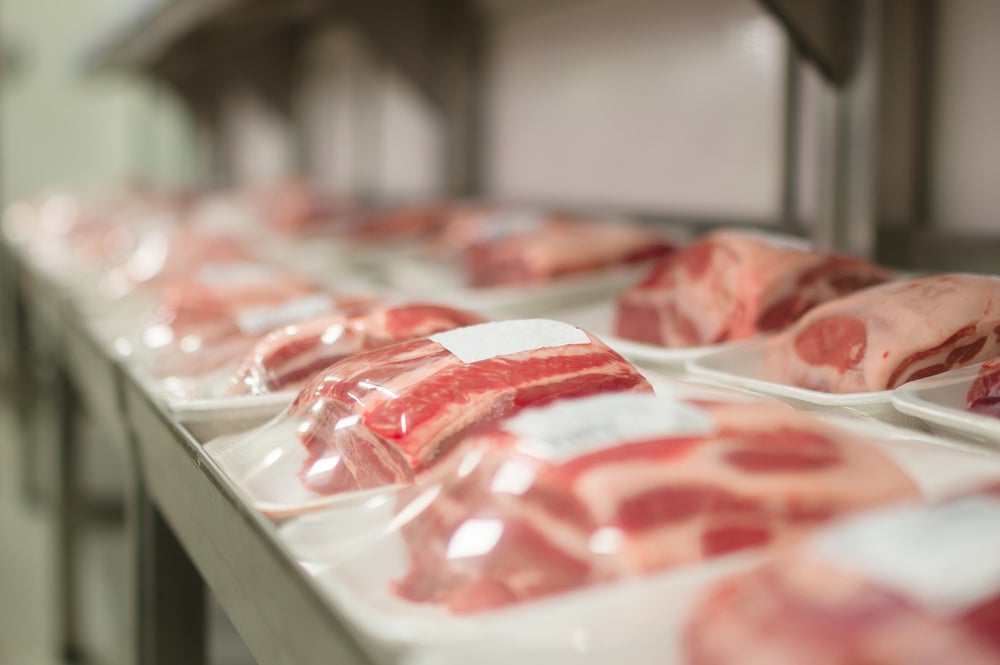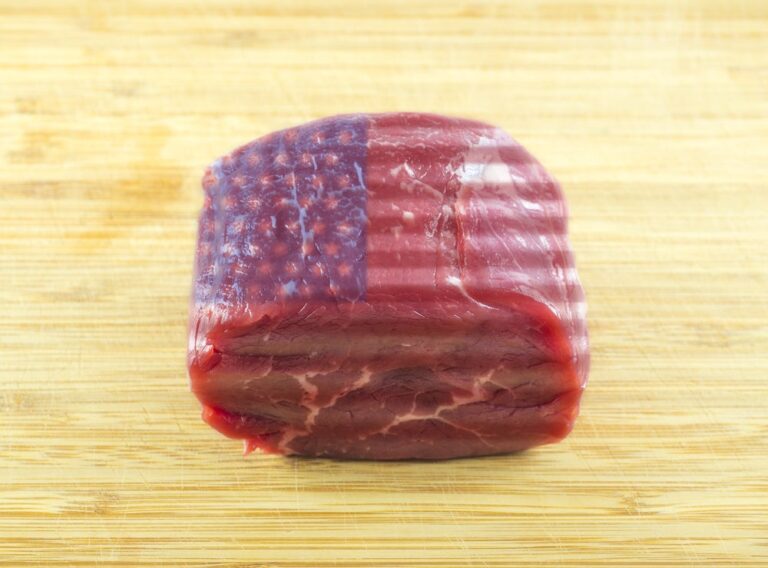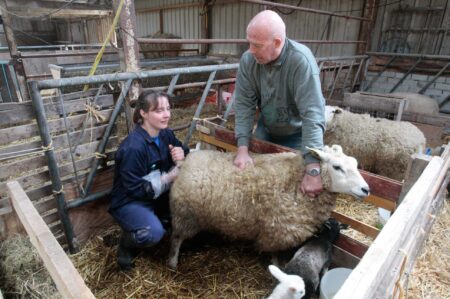Some American farmers and ranchers are celebrating the reintroduction of the bipartisan American Beef Labeling Act (S-421), which claims to be able to bring transparency to the beef industry.
On Wednesday, Senate Majority Leader John Thune (R-S.D.) and Sens. Cory Booker (D-N.J.), Mike Rounds (R-S.D.), Martin Heinrich (D-Minn.), Cynthia Lummis (R-Wyo.), John Fetterman (D-Pa.), and John Hoeven (R-N.D.) reintroduced the bill, which aims to reinstate mandatory country-of-origin labeling for beef. This initiative would give consumers clear information about the source of their beef and help level the playing field for American ranchers.
“We are most appreciative to Senator Thune for introducing Country of Origin Labeling for beef as he promised America’s consumers and cattle producers,” said Gilles Stockton, a rancher from Grass Range, Montana, and member of the Northern Plains Resource Council.
The bill requires the Office of the U.S. Trade Representative to develop a plan to reinstate COOL that aligns with World Trade Organization regulations. If the bill passes, the USTR and the Department of Agriculture will have one year to reach agreements with international trade partners and implement the new labeling requirements.
The Western Organization of Resource Councils has voiced its strong support for the bill, calling on leaders from both political parties to endorse and pass it without delay. They see the American Beef Labeling Act as a crucial step in ensuring that U.S. beef producers can compete fairly in the marketplace by giving consumers the transparency they deserve.
“Consumers deserve the right to know where the beef they purchase comes from and ranchers like me deserve the right to compete in a free and transparent market,” Stockton emphasized.
If passed, the bill could reshape the beef industry, ensuring that American ranchers can showcase the quality of their products while providing consumers with more informed choices at the store.

The history of COOL and MCOOL
The history of Country-of-Origin Labeling and its predecessor, Mandatory Country-of-Origin Labeling, has been a complex journey of regulatory change, legal challenges, and advocacy by agricultural producers.
The concept of COOL for meat products gained significant traction in the early 2000s as part of the 2002 Farm Bill. The original intent was to give consumers more information about where their food came from, especially in the wake of consumer concerns over food safety. Under the 2002 Farm Bill, the U.S. government implemented voluntary COOL for most food products, including meats like beef, pork, and lamb. However, the program was voluntary for producers, which limited its impact.
By 2008, concerns about food safety, particularly following incidents like the mad cow disease scare, led Congress to pass a more stringent version of COOL for beef, pork, and lamb in the 2008 Farm Bill. This new legislation made COOL mandatory for these meats, requiring retailers to label meat products with information on the country of origin. The law was intended to provide consumers with greater transparency, allowing them to make informed decisions about the products they purchased.
In 2009, the U.S. Department of Agriculture implemented the rules for MCOOL, requiring that beef, pork, and lamb be labeled with their country of origin. Producers were required to track the origin of animals from birth to slaughter, which raised concerns about the complexity and cost of the program for both producers and retailers. Despite these concerns, many U.S. ranchers supported MCOOL as a way to distinguish American products in the marketplace and ensure consumers were informed about the origin of their meat.
Despite the initial implementation, MCOOL faced legal challenges from trading partners, particularly Canada and Mexico, who argued that the labeling requirements were discriminatory and violated international trade agreements under the World Trade Organization. In 2015, the WTO ruled in favor of Canada and Mexico, stating that MCOOL regulations created unfair trade barriers, leading to higher costs for beef and pork products from these countries.
As a result of the WTO ruling, the U.S. government was forced to repeal the mandatory requirements for beef, pork, and lamb labeling in 2016. This decision led to a rollback of MCOOL, leaving the labeling of meat products voluntary once again.
Following the repeal of MCOOL, ranchers, particularly those in the U.S., continued to push for the reintroduction of mandatory COOL, citing the need for fair competition and consumer transparency.


:max_bytes(150000):strip_icc()/Planting20Beans-01ff8ee215b04945a658b7c6c21a558a.png)
:max_bytes(150000):strip_icc()/Witthaya20Prasongsin20SMALL-1221627119-b3354c967a6b40f792ec3559a2cd819c.jpg)
:max_bytes(150000):strip_icc()/CarbonBrain-522480324-2-2000-c4a0f16eb7ec4100b3c903474cccf7c4.jpg)



:max_bytes(150000):strip_icc()/AbrahamAccordsEvent-1243171950-1bb22ee001e245bdbf1487893b618a88.jpg)

:max_bytes(150000):strip_icc()/NAV-960_MF_Brazil-90b3d0f529874ec9ad0550650208cc83.jpg)